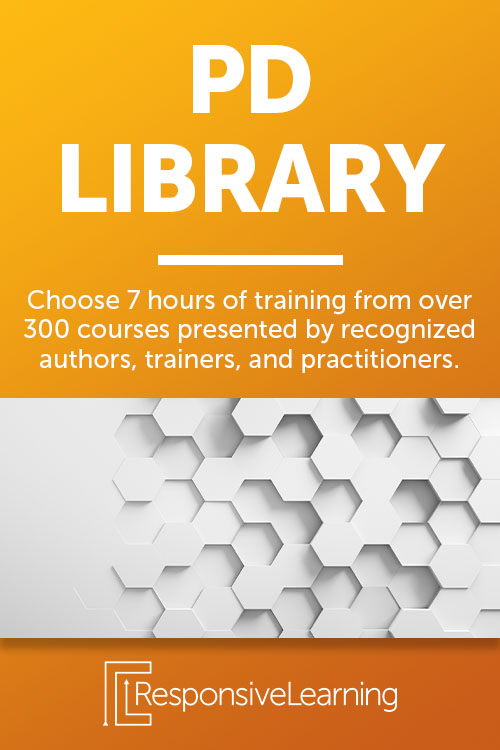Kira is a bright student who has expressed concern about returning to school next semester. Although she’s eager to learn, she remains apprehensive about not knowing the other students who never spoke or showed their faces in her virtual classroom. As a teacher, how can you help alleviate the anxiety that Kira and her peers may be experiencing when they return to in-person learning? When Students Return – Getting Back to In-Person Learning prepares you for what students are likely feeling when they return to the classroom by showing you the best practices to equip in your instruction that will help ease any negative emotions.
Self-Regulation ABCs
The ABCs of self-regulated learning fall into three different dimensions: Affect, Behavior, and Cognition. Affect stands for feelings, attention, focus, and motivation. Behavior encompasses communication, collaboration, listening and literacy skills, and study habits. Cognition covers meta-cognition (your internal dialogue), infra-cognition (self-efficacy), and metaphysical cognition (philosophical thinking). All of these areas are interconnected with self-regulation.
Dr. Richard Cash, who has over 25 years of experience in differentiated education and self-regulated learning, provides insight into what students are facing when they return to school and how teachers can help alleviate their fears. Cash points out, “how a learner feels about a situation determines the focus of their attention.”
Lacking self-regulation can cause an array of problems for students, such as being bored. “Boredom is a self-induced state,” Cash explains. “It is a feeling created by the person.” This feeling often arises in students when they are unable to self-regulate. Knowing how to model and teach self-regulation behavior is an invaluable skill that every teacher should incorporate into their classroom routine.
4 Stages of Self-Regulation
The four self-regulation stages must be taught for students to fully understand how to do this on their own. Modeling and observing are very important, especially in early childhood, so that students can develop literacy skills by watching and listening during read-aloud time. Cash explains that this process should continue throughout their entire school experience. “We need to be positively modeling these behaviors, the Affect, and the Cognition for our students.” This gives them positive ways to deal with difficult situations.
The second stage involves copying and doing. You’ll want to provide opportunities for students to feel supported and nurtured, especially if they’re struggling. Some students may need more time while others will find it quite easy. Next, there’s practice and refinement. This is where students learn to put their unique signature on what they do, regarding not only strategy but their thought processes and self-talk as well.
Finally, students will learn independence and application. This involves applying the skills they’ve learned to complete a task successfully without instruction. Once they have mastered all four self-regulation stages, students will have the tools they need to learn and succeed through the gradual release of responsibility (GRR). Cash prefers to call it the “gradual release of control” (GRC) because, “as you start to release the control of the classroom, your students start to develop more of the responsibilities.”

Create a Supportive Learning Environment
Chronic, long-term stress can have negative effects on our mental and physical health. You can help prevent this from occurring in students by creating a safe, supportive learning environment in your classroom that fosters genuine relationships, identifies individual importance, and builds community connections.
Remember to stay consistent with how you present yourself and interact with your students. It’s important that you remain a positive and reliable role model for students who look up to you for guidance and support. Discover what your students are passionate about and encourage them to pursue their unique interests. By doing this, you will help foster a lifelong positive influence on your students as they have the confidence to learn and thrive.
Interested in learning more about how you can enhance your classroom instruction? Explore the course demo on When Students Return – Getting Back to In-Person Learning today!

